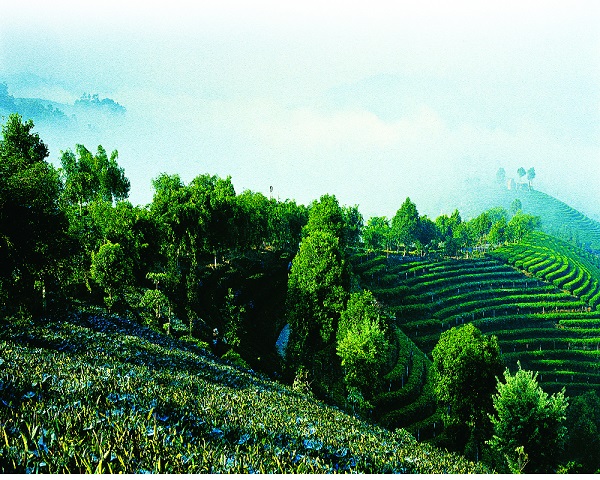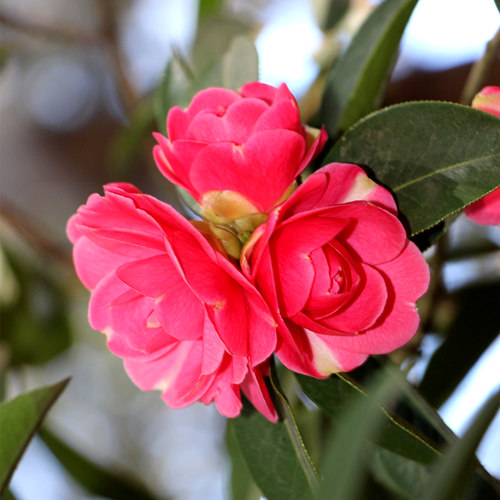
Detailed Introduction to Weixin County of Zhaotong
Weixin County (威信县) is located in the southern part of Zhaotong City, in the northeastern region of Yunnan Province, China. Known for its rich natural resources, cultural diversity, and historical significance, Weixin County is a fascinating place with a blend of agricultural prosperity, scenic beauty, and ethnic culture. This detailed introduction covers the geography, history, economy, culture, and key attractions of Weixin County.
Geographical Location
Weixin County covers an area of approximately 3,210 square kilometers. It is situated in the southern part of Zhaotong City, bordering several other counties, including Shuifu, Zhaoyang, and Ludian. The county is located on the edge of the Yunnan-Guizhou Plateau, which gives it a varied landscape, including mountainous terrain, fertile valleys, and river systems.
The county enjoys a subtropical highland climate, characterized by mild temperatures year-round and distinct seasonal changes. The climate supports a variety of agricultural activities, and the diverse topography makes the area an ideal location for both farming and eco-tourism.
History
Weixin County has a long history that dates back to ancient times. The area was once home to several indigenous ethnic groups, including the Yi, Hui, and Han people. Historically, Weixin was an important area for trade and agricultural production, especially during the Ming and Qing dynasties. The region was a key part of the administrative and cultural developments of the larger Zhaotong area.
Weixin's name is believed to derive from a local legend involving the Weixi River, which flows through the county. The river, along with the fertile lands surrounding it, contributed to the region's long-standing agricultural prosperity.
Economy
The economy of Weixin County is primarily based on agriculture, although the county has been diversifying in recent years, with emerging industries such as mining, manufacturing, and tourism contributing to its growth. The fertile land and favorable climate in the county support a wide range of agricultural activities.
1. Agriculture
Agriculture is the cornerstone of Weixin's economy, and the county produces a variety of crops due to its suitable climate and fertile soils. Major agricultural products include rice, corn, tobacco, and various fruits, including apples, pears, and citrus. The county also grows vegetables such as potatoes, chili peppers, and onions.
One of Weixin’s most important agricultural products is tobacco, which is cultivated on a large scale and is a key contributor to the local economy. Other important agricultural sectors include livestock farming, particularly pigs, cattle, and sheep.
2. Industry
In addition to agriculture, Weixin has made strides in developing its industrial sector. The county is rich in natural resources such as coal, limestone, and clay, which have contributed to local mining and construction industries. Food processing and construction materials are also key industries in Weixin.
As part of ongoing economic development, Weixin is focusing on attracting investments and improving infrastructure. The local government is working to promote the development of small and medium-sized enterprises (SMEs) and enhance the county's industrial capacity.
3. Tourism
Weixin County is becoming an increasingly popular destination for tourism, thanks to its beautiful natural landscapes, rich cultural heritage, and unique ethnic communities. The county is known for its mountainous terrain, rivers, and ethnic villages, which attract visitors interested in eco-tourism and cultural exploration.
Ethnic and Cultural Heritage
Weixin County is home to several ethnic groups, with the Yi, Hui, Han, and Miao peoples living in the area. This ethnic diversity has contributed to a rich cultural landscape, with a variety of traditions, festivals, and customs that make the county unique.
1. Yi Culture
The Yi people are the largest ethnic group in Weixin, and their cultural practices are deeply ingrained in the area. The Yi community celebrates many traditional festivals, with the Torch Festival being the most prominent. During this festival, Yi people participate in dances, fire rituals, and other traditional ceremonies that celebrate the harvest season.
Yi culture is also reflected in their traditional music, dance, and art. The Yi people are skilled in embroidery, silver jewelry making, and pottery, which are important components of the local economy and cultural life.
2. Hui Influence
The Hui people, who practice Islam, also play a significant role in Weixin's cultural makeup. The Hui community brings unique traditions, including their own festivals, food, and religious practices. The annual celebrations of Eid al-Fitr and Eid al-



